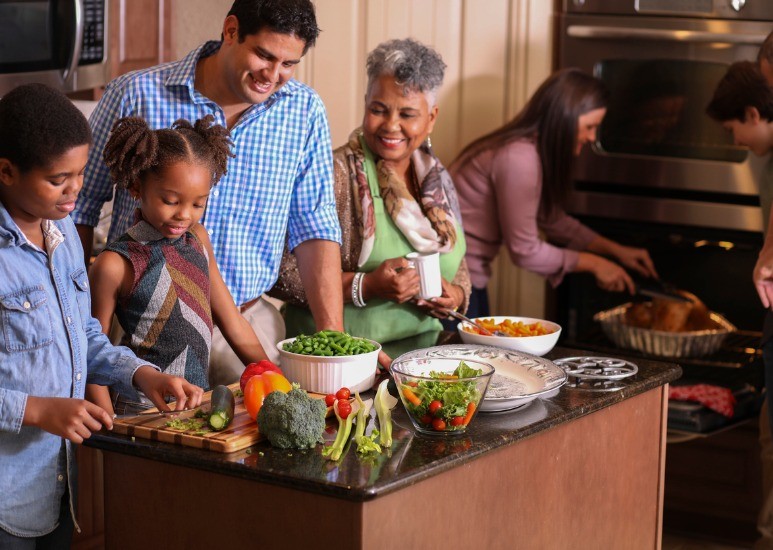With the holidays approaching, you might be making plans to spend time with your extended family. This year don’t just share food and conversations — make sharing your family health history part of your holiday traditions.
Learn Your Risks
Families share more than genetics and recipes. They share lifestyles, behaviors and, sometimes, living environments that influence their risk of developing chronic diseases. A complete family medical history can help you identify who is at higher risk for developing common disorders.
If your grandmother has high blood pressure or your uncle had a stroke, for example, it might mean that you’re also at risk. From diabetes to cancer, learning about your family’s health is the first step toward reducing your own risks.
Ask the Right Questions
Your risks may be shared, but health is still a personal subject. Some family members might find it uncomfortable to talk about their well-being, or about a disease that a loved one has faced. They might even feel defensive about “passing down” a health condition to you.
The best policy is to be open and honest. Explain to your family that you’ve been wondering about your risk of developing a particular health condition, and you’re curious what they know about your family history. Conversation should come more easily if you avoid accusatory statements, like “I’m afraid that since you and dad have heart disease, I’m going to get it, too.”
If you need help approaching the conversation, the CDC has a tool that can make it a family activity. Their My Family Health Portrait tool is free to use, and could make your family feel more engaged in talking about your shared health risks. Here are some of the conditions you might want to ask about:
- Alzheimer’s disease
- Arthritis
- Asthma
- Cancer
- Dementia
- Depression
- Diabetes
- Emphysema
- Heart disease
- High blood pressure
- High cholesterol
- Osteoporosis
- Single gene diseases, like cystic fibrosis or sickle cell disease
- Stroke
Act on Your Risks
Knowing is half the battle. The other half is acting on that knowledge. Community’s health risk assessments can help you make sense of your family’s health history. You’ll answer a few simple questions about what you learned from your relatives, and share a bit about your lifestyle.
Once you’re done, you’ll be given a customized plan of attack to make sure you stay on top of your health. Your results will tell you how you can take action — like scheduling a screening or making a change to your habits.
Make this holiday season one to remember. Take a health risk assessment and take steps toward a healthier new year.
